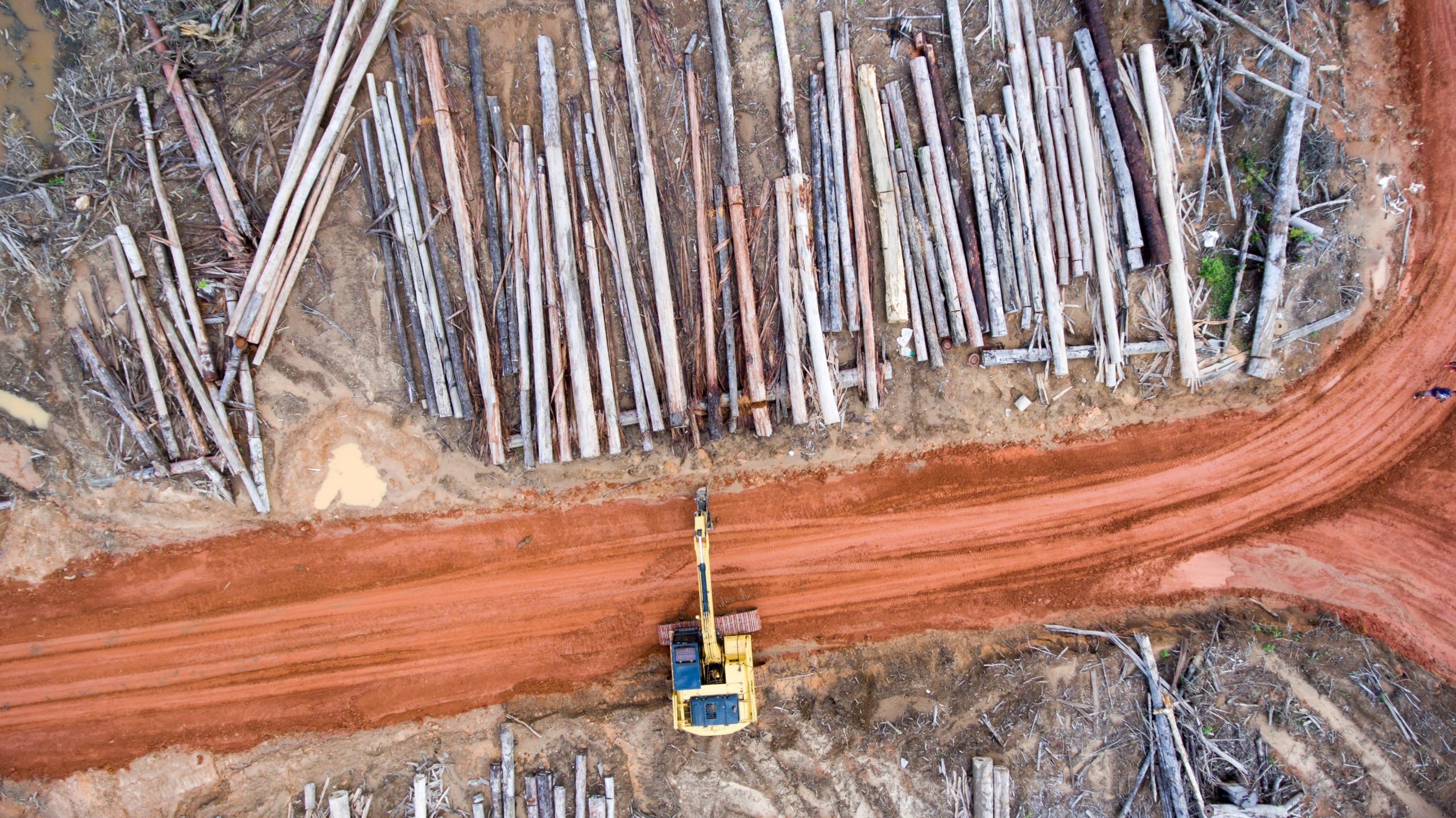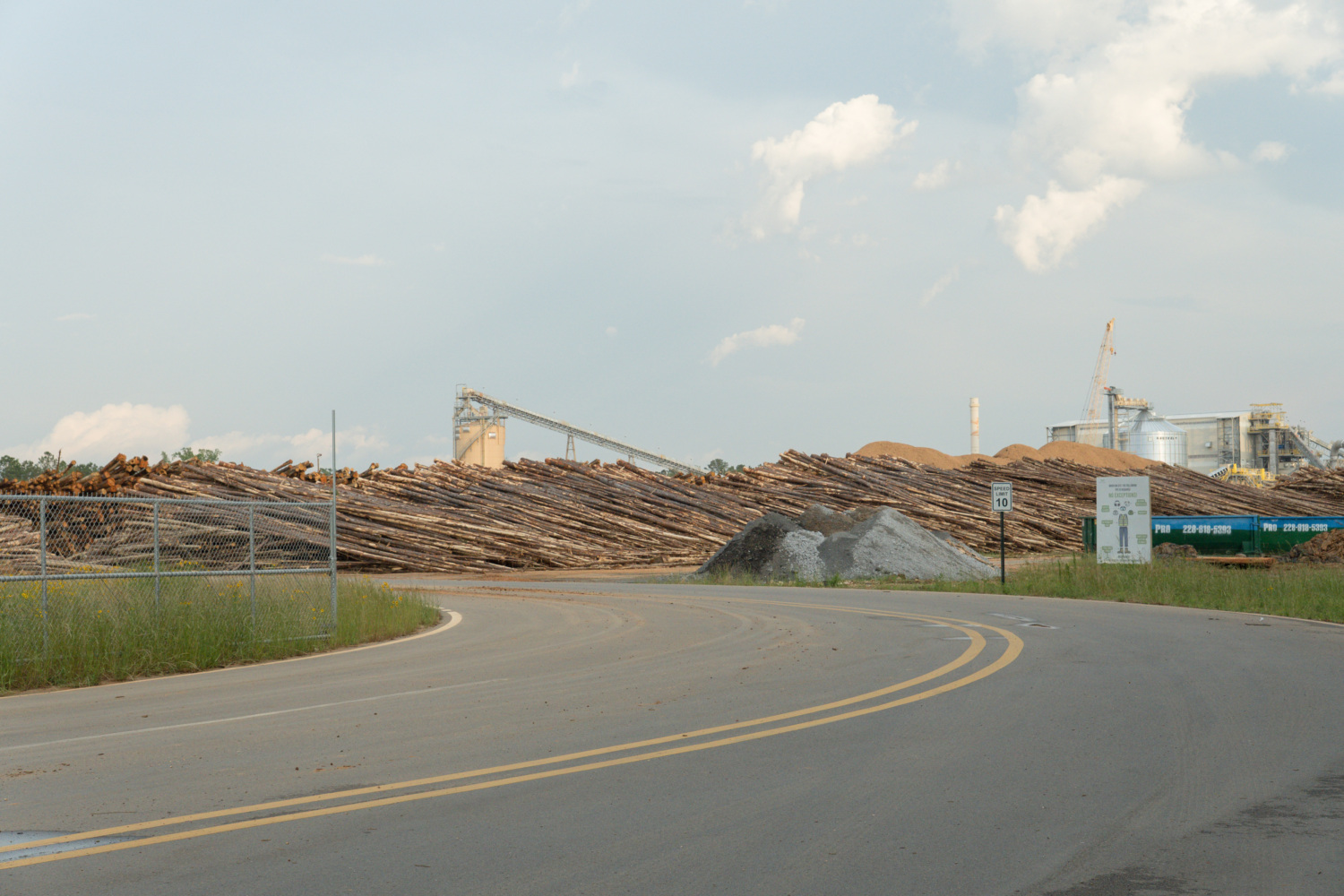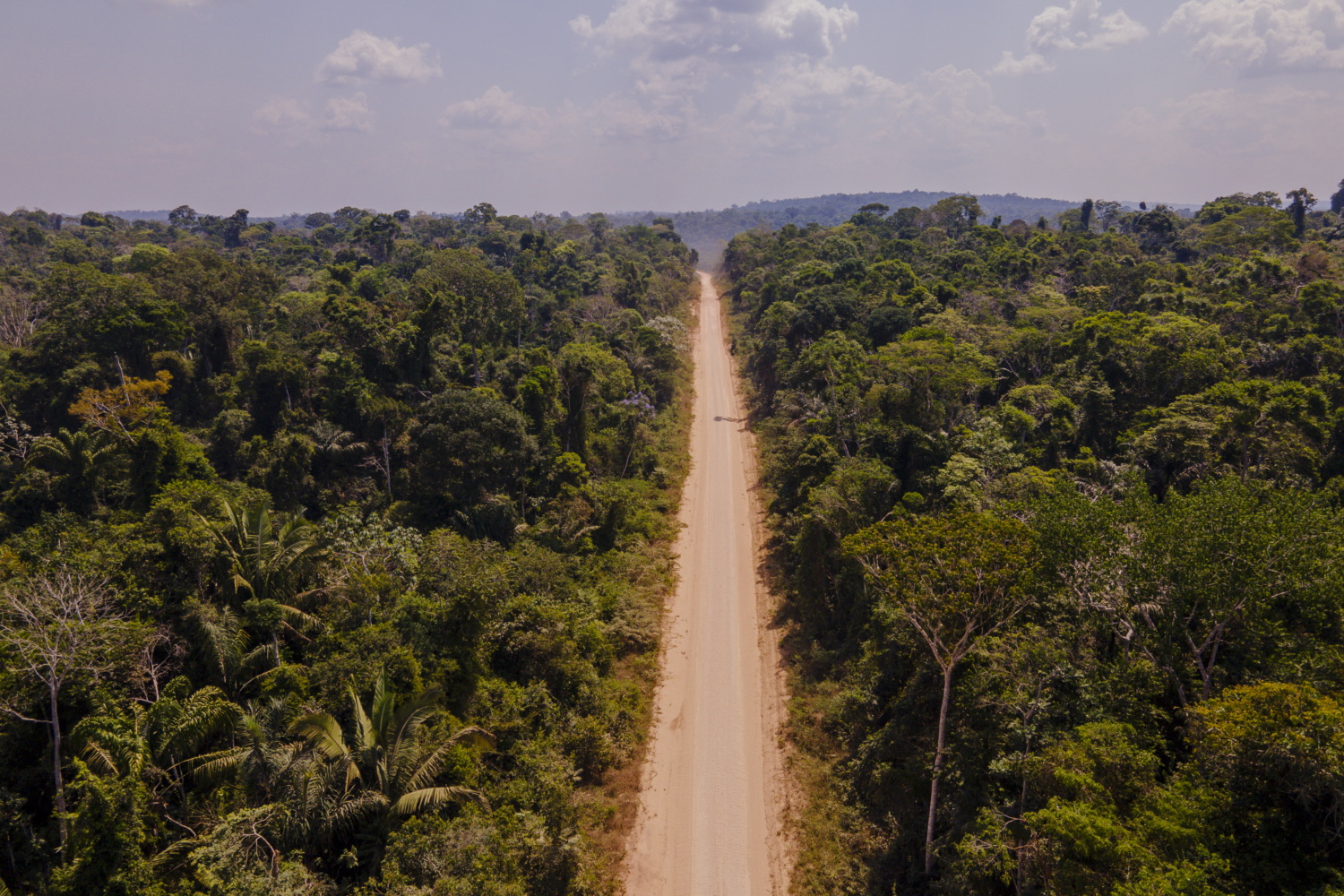
Investigation Reveals Deforestation Throughout Palm Oil Supply Chain
Marisa Bellantonio, 203-479-2026
[email protected]
Major palm oil buyers kept Korindo in their supply chain for more than two years after No Deforestation policies
Merauke, Papua, Indonesia (1 September, 2016) — A groundbreaking new investigation released today by the environmental organization Mighty, the Korean Federation for Environmental Movements (KFEM), the Indonesian humanitarian organizations SKP-KAMe Merauke and PUSAKA, Rainforest Foundation Norway, and Transport & Environment, reveals new satellite, photographic, and video evidence of massive deforestation and illegal burning of pristine rainforest by the Korean-Indonesian corporation Korindo, to support establishment of its palm oil plantations on the Indonesian provinces of Papua and North Maluku. The report is being released just as the fire season is heating up across Indonesia. While the report focuses on Korindo’s palm oil business, its sizeable timber operations are having a similar impact, including on the habitat of beloved and rare tree kangaroos and birds of paradise endemic to Papua.
The investigation, including stunning photos and videos, is available at www.MightyEarth.org/BurningParadise.
Read the full technical report here.
“The extent of Korindo’s systematic clearing and burning of Indonesia’s pristine rainforest is downright tragic,” said Deborah Lapidus, Campaigns Director for Mighty. “But what’s shocking is that the world’s major buyers of palm oil kept Korindo in their supply chains for more than two years after adoption of their No Deforestation policies. Although individual companies have made some progress on cleaning up their supply chains, the example of Korindo shows that company-by-company efforts to stop deforestation and human rights abuse are inadequate, and that an industry-wide ban on deforestation is needed immediately.”
“Major palm oil buyers like Wilmar, Musim Mas, ADM, and IOI, who sell to consumer companies like L’Oreal, Biersdorf, and General Mills, did the right thing by ceasing purchases from Korindo when we shared this evidence with them, but they should have caught Korindo’s obvious deforestation and illegal burning sooner. It’s hard to miss 34,000 hectares of deforestation in the middle of a pristine rainforest,” Lapidus added.
In stark contrast to its “green” branding, Korindo has not published any sustainability policies and fails to abide by the No Deforestation, No Peat, No Exploitation (NDPE) standards adopted by major palm oil buyers around the world, which led to it being dropped by the large traders Wilmar and Musim Mas. In response to this market pressure, on August 9th 2016 one Korindo subsidiary called PT Tunas Sawa Erma, announced a moratorium on forest clearing over the next three months as it develops a NDPE policy. However, Korindo fell far short of action to end deforestation and land rights abuses across its sprawling palm oil and timber operations.
“Korindo is giving Korea a shameful reputation around the world,” said Choony Kim, International Cooperation Specialist with the Korean Federation for Environmental Movements. “Korean companies should respect customary rights of local communities and adhere to the environmental laws of the countries in which they are operating.”
Papua is a remote Indonesian province with access restrictions for media and civil society. As a result, Korindo has been able to get away with systematic clearing and burning for oil palm plantations with almost no accountability. The extensive photos from this field investigation are therefore extremely rare and difficult to obtain.
“The rainforest has defined life and culture in Papua. In a few short years Korindo has destroyed the forests that our ancestors called home, the forests that provide us with food, shelter, and clean water,” said Pastor Amo, the religious leader and Director of SKP-KAMe Merauke. “The Indonesian government should be stepping in to stop this company from converting Papua’s natural treasures into industrial farms.”
“Indigenous peoples’ rights have been abused systematically by Korindo, which has destroyed the forests that are their source of livelihood. This must stop and the government must protect the indigenous peoples’ rights and the forests they rely on,” added PUSAKA Director Y.L. Franky.
The report’s main findings reveal:
- Mass deforestation – In total, Korindo has cleared more than 50,000 hectares of tropical lowland forests in Papua and North Maluku, Indonesia for palm oil; an area approximately the size of South Korea’s capital city, Seoul. Since 2013 alone, it has cleared 30,000 hectares of forests in the two provinces, 12,000 hectares of which were primary forests
- Illegal fires – All evidence – satellite imagery, hotspot data, and aerial photographs – points to Korindo’s systematic and abundant use of fire during its land clearing processes, which is illegal in Indonesia. The report finds that Korindo was a significant contributor to the 2015 Southeast Asian haze crisis which led to respiratory illness in millions of people, infant deaths and cost Indonesia’s economy $16 billion. Korindo could also be held accountable under Singapore’s Transboundary Haze law, which can impose fines and jail time on foreign companies driving haze in Singapore. These findings will be filed with Indonesian and Singaporean prosecutors.
- Wildlife extinction – Papua is a rainforest paradise, hosting a full 50 percent of the entire Indonesian archipelago’s biodiversity. In fact, the area where Korindo currently operates in North Maluku was one of the stops of British naturalist Alfred Russel Wallace on his famous eight-year Indonesian expedition, where he gathered 100,000 insect, bird, and animal specimens that helped him develop the theory of evolution along with his contemporary Charles Darwin. Papua is home to thousands of unique flora and fauna species, including birds of paradise, rainbow fishes, and tree kangaroos. These small marsupials are at risk of total extinction as they lose their forest habitat.
- Community rights abuse – Papua is also home to over 300 distinct indigenous tribes, some of whom remain uncontacted. Korindo has generally failed to recognize the right of local communities to give or withhold their Free, Prior and Informed Consent (FPIC) to any new developments on community lands. Korindo’s subsidiary PT Gelora Mandiri Membangun is occupying the farmland and forests of communities in the South Halmahera district of North Maluku. Most of the communities, which have lived there for hundreds of years, are strongly opposed to an oil palm plantation. Korindo is disregarding their customary land rights by continuing its operations there.
- Continued threat – 75,000 hectares of untouched forests remain in Korindo’s palm oil concessions that are at imminent risk of destruction. Even more remain in Korindo’s logging concessions. In addition, Korindo is paving the way for large scale commodity agriculture in Papua, heralding a gold-rush-type land grab in the area of Indonesia with the largest intact rainforest landscapes.
Korindo, the firm responsible for the deforestation and burning of Papua, is a Korean-Indonesian conglomerate with subsidiaries in natural resources, newsprint paper manufacturing, heavy industries, and finance. The 20,000 employee corporation has affiliates around the globe, including the LA-based company KOUSA which sells paper products and wind towers to companies like Siemens and Clipper.
Palm oil is used in a variety of consumer goods such as shampoo, margarine, ice cream, pizza dough, doughnuts, lipstick, and much more. It is estimated that about 50% of consumer goods contain palm oil. A large portion of palm oil is also now used for biofuel. 45% of the palm oil used in Europe today is burned in car and truck engines, according to a 2016 report by Transport & Environment. According to European policy, all palm oil must be deforestation-free, but Korindo has been selling to many of the trading companies that sell palm oil-based biofuels in Europe.
For more information, including photos and videos from the field of Korindo’s operations visit: www.mightyearth.org/burningparadise
About Mighty
Mighty is a new global environmental campaign launched by the Center for International Policy. Mighty deploys courageous, nimble, and strategic campaigns to make a lasting difference for the environment, with a significant focus on forest conservation. Using advocacy, grassroots organizing, communications, and research, Mighty works to achieve victories for the planet, its people, and its creatures. Learn more at www.mightyearth.org.


